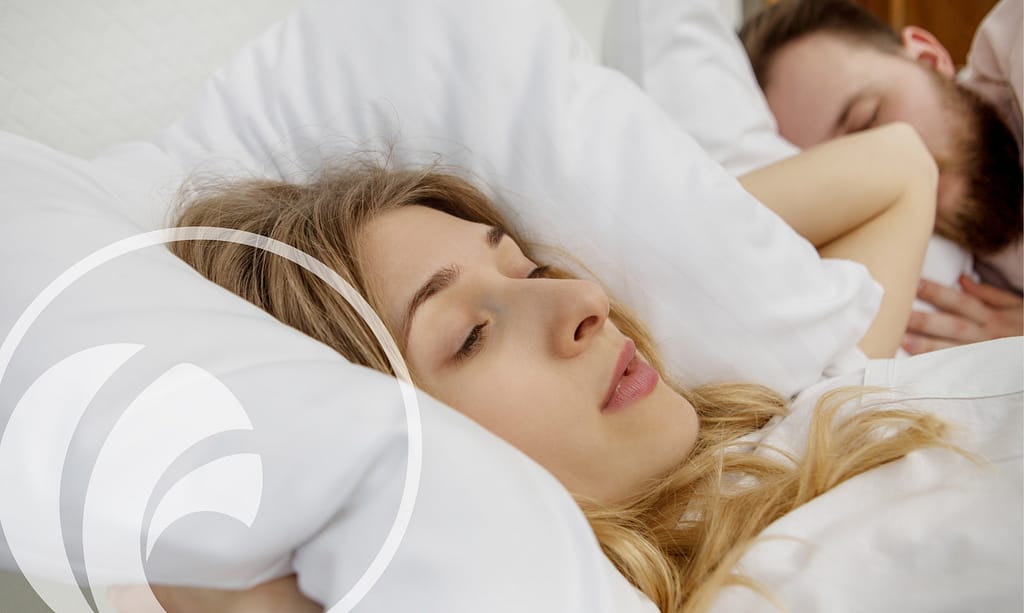Sleep Apnea and Bruxism: Unraveling the Hidden Connection for a Better Night’s Sleep

Have you noticed that you’re always tired throughout the day or that you experience pain in or around your jaw? If so, factors such as sleep apnea and bruxism could be at play. These two conditions often go hand-in-hand, and seeking out effective treatment can significantly improve your quality of life.
What is sleep apnea?
Sleep apnea is a common condition where an individual stops breathing during sleep, jolting them awake suddenly to gasp for air. In many cases, people with sleep apnea fall asleep again immediately, having no memory of these events. They can feel tired throughout the day without having any explanation.
There are two primary types of sleep apnea: central and obstructive. Central sleep apnea is caused by neurological issues. Obstructive sleep apnea is much more common and is due to muscles in the throat relaxing and closing the airway. Obstructive sleep apnea is often closely related to bruxism.
What is bruxism?
Bruxism is the unconscious grinding or clenching of teeth, particularly during sleep. It can cause serious wear on your teeth and even chips and cracks. Individuals who suffer from bruxism are more likely to suffer tooth decay, increased sensitivity, and jaw pain.
There are a variety of potential causes that contribute to bruxism. Stress is one of the most prominent. If you carry excessive stress without having a way to manage it, you can find yourself grinding and clenching your teeth. A misaligned bite is another factor, as your teeth may rub against each other unnaturally if they aren’t properly aligned.
What’s the connection between sleep apnea and bruxism?
Obstructive sleep apnea is among the most common breathing disorders, with estimates showing that 15 to 30% of males and 10 to 30% of females experience the condition. These values are higher in people who experience bruxism.
The direct connection between the two conditions isn’t entirely understood. The two share a variety of common underlying factors. Stress can be a factor in both, as can general poor health. Obesity and smoking are two of the most significant risk factors for sleep apnea and also tend to go with poor oral health.
How do these conditions impact your health?
Both sleep apnea and bruxism can seriously impact the quality of your sleep, which carries a variety of negative consequences. Chronic sleep deprivation can leave you tired and fatigued throughout the day. It also leads to drowsiness when driving or carrying out other potentially dangerous activities.
Sleep apnea can contribute to a range of heart conditions. The brief stop in breathing causes blood oxygen levels to drop. In order to compensate, the body increases blood pressure. High blood pressure is a factor in many types of heart disease and risks such as heart attack and stroke.
Bruxism wears away enamel, which does not grow back. This reduces the protection that your teeth have against tooth decay, allowing cavities to take hold and progress more easily. You’ll be more likely to need a root canal treatment or extraction at some point.
What treatment options are there for sleep apnea and bruxism?
These conditions have various treatment options depending on the severity of your case. One of the most common treatments for severe sleep apnea is the use of a continuous positive airway pressure (CPAP) machine. A mask worn over the nose during sleep provides continuous pressure to keep the airway open.
However, many patients report that this treatment is uncomfortable, with some quitting it entirely despite the health benefits. Another potential solution for mild to moderate sleep apnea is a custom oral appliance, also called a nightguard. This type of mouth guard holds the jaw in a position where throat muscles are less likely to relax.
A custom oral appliance is also an excellent treatment for bruxism. It separates the upper and lower teeth, preventing them from grinding and clenching. This prevents wear, chips, and cracks.
Sleep apnea treatment often requires a multidisciplinary approach, so involving a speech specialist and a dentist in your treatment planning is important.
Make changes in your life to address these conditions.
In many cases, lifestyle factors play a major role in sleep apnea and bruxism. You can ask your dentist about changes that may help improve these conditions.
A healthy diet and exercise are both steps that can help relieve sleep apnea when obesity or respiratory health is a factor. Seeking out stress management techniques can also improve these conditions. Maintaining a regular sleep schedule whenever possible and avoiding screen use immediately before sleep can also contribute to healthier sleep.
Find the solution you need in Corpus Christi.
If you’re concerned about sleep apnea and bruxism, you can visit the best family dentist in Corpus Christi to get to the bottom of the issue. We can evaluate your case and refer you to a sleep specialist for diagnosis if needed. A custom oral appliance can help improve both issues, and we also employ the latest dental laser technology for oral surgery intervention. Schedule your consultation with Orchard Dental Associates today.